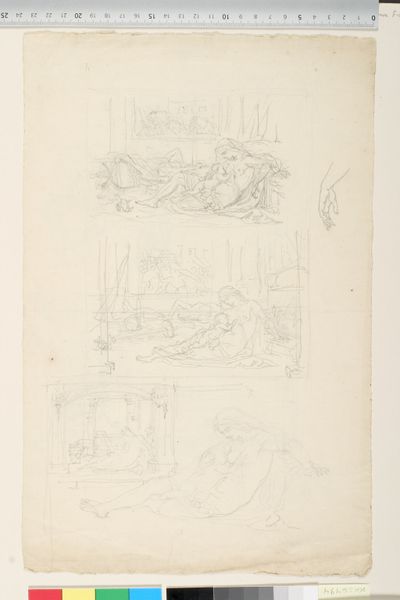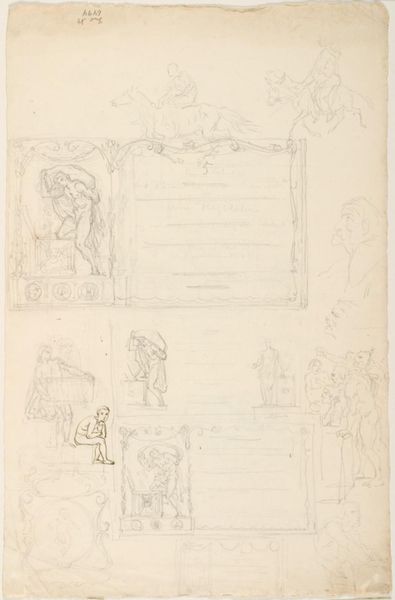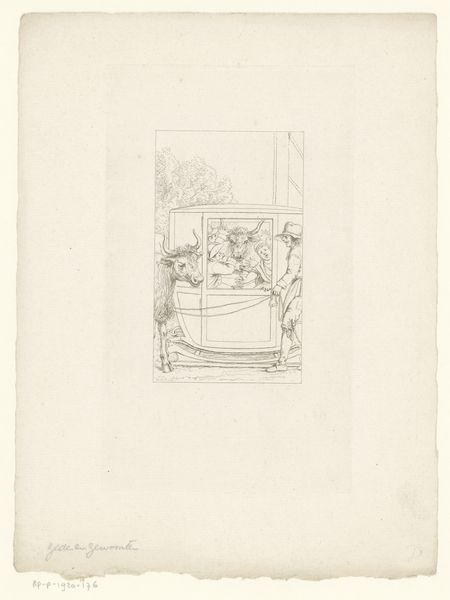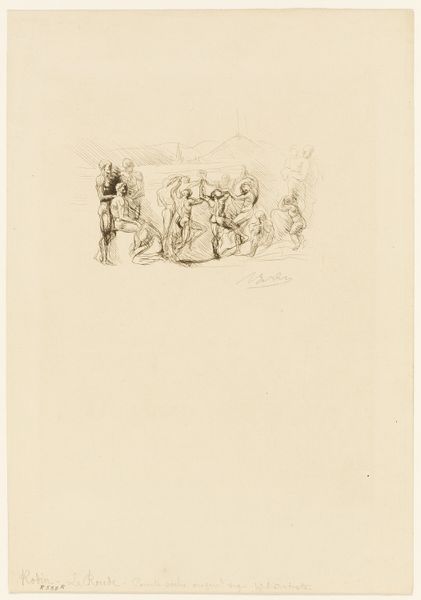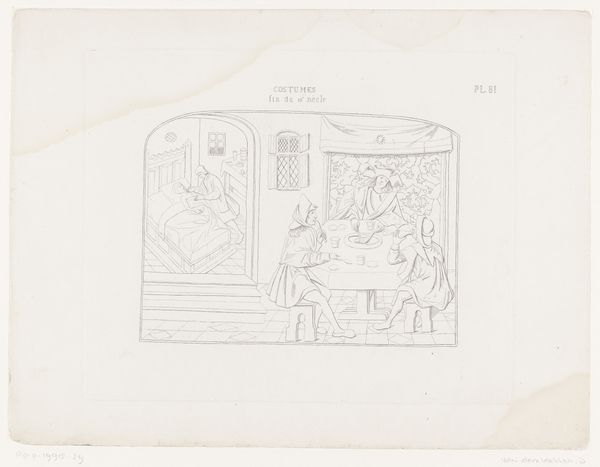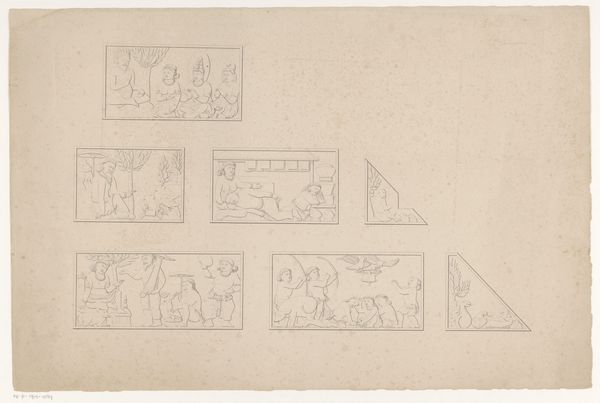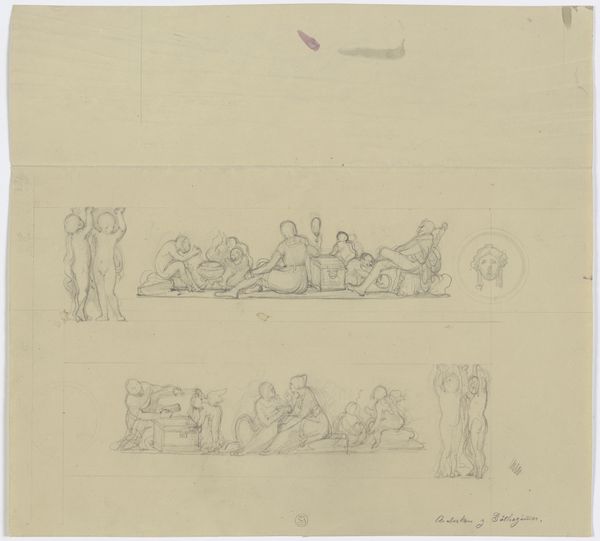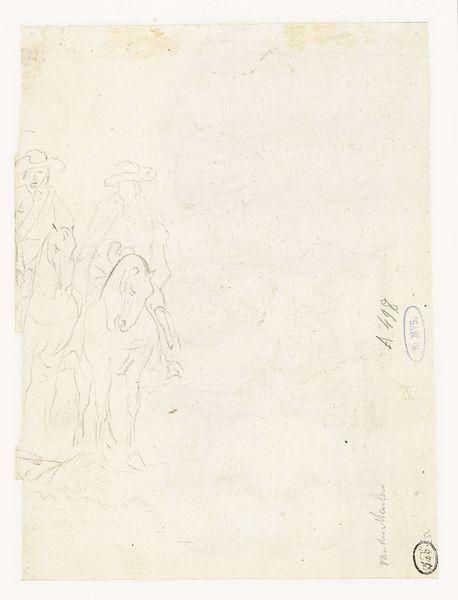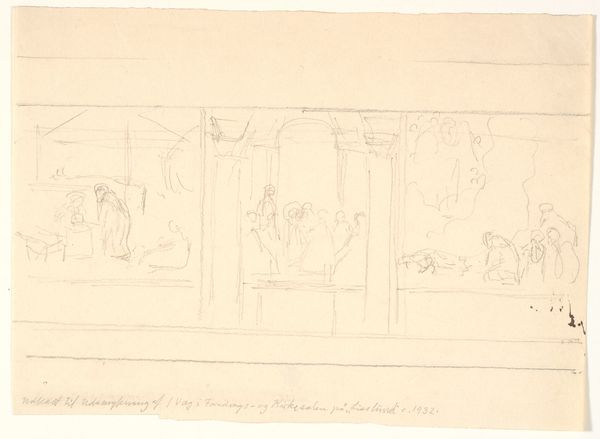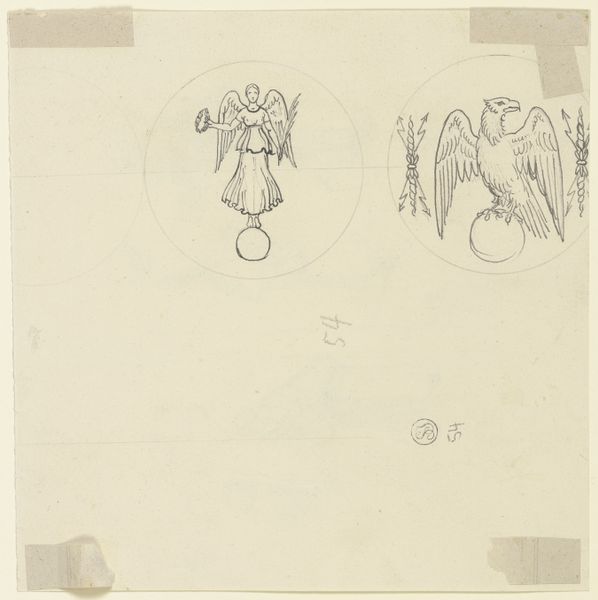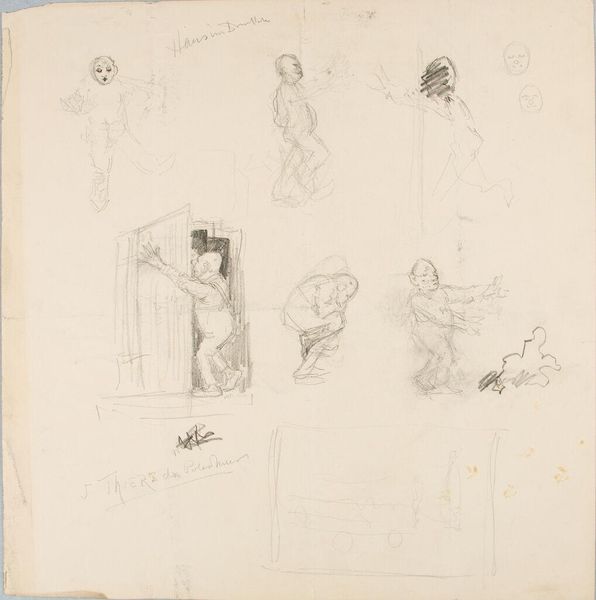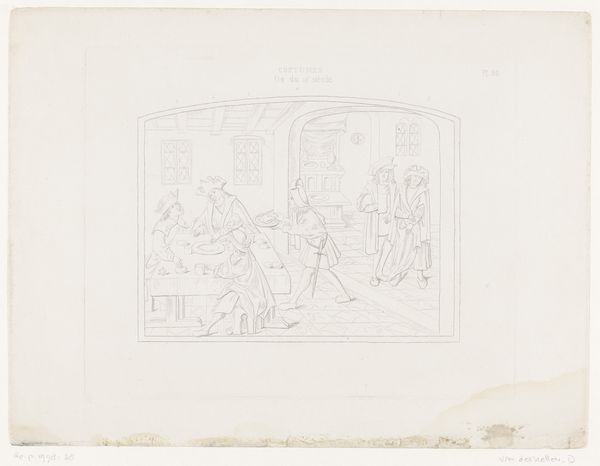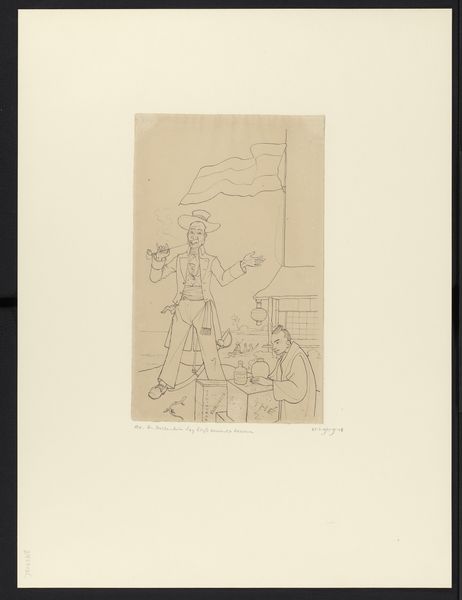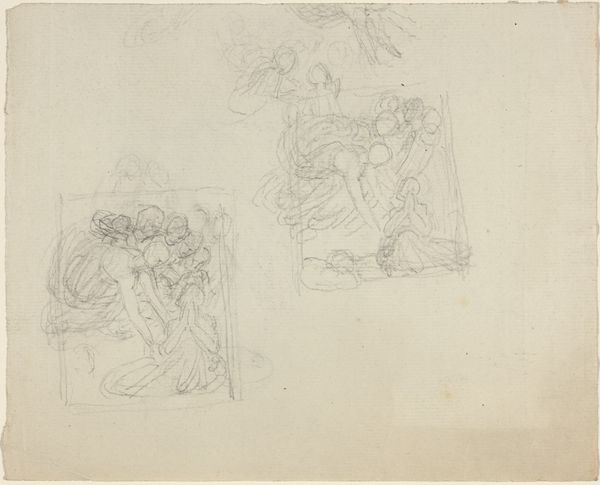
drawing, pencil
#
drawing
#
comic strip sketch
#
imaginative character sketch
#
medieval
#
quirky sketch
#
figuration
#
personal sketchbook
#
idea generation sketch
#
sketchwork
#
ink drawing experimentation
#
pencil
#
costume
#
line
#
sketchbook drawing
#
history-painting
#
storyboard and sketchbook work
#
sketchbook art
Dimensions: height 263 mm, width 211 mm
Copyright: Rijks Museum: Open Domain
Curator: This drawing, aptly titled "Kostuums," meaning "Costumes," is by David van der Kellen, created sometime before 1878. It’s currently held in the collection of the Rijksmuseum. The work is primarily rendered in pencil and ink. Editor: It has such a light, almost ephemeral quality to it. The figures seem lifted directly from medieval tapestries, though the medium gives it a far more immediate feel, like a fleeting glimpse into a past era. There’s a clear emphasis on line. Curator: Absolutely. Van der Kellen was deeply interested in historical representation. Consider the context of the late 19th century; historical paintings were incredibly popular, seen as reflecting and shaping national identity. He dedicated significant time documenting the evolving styles in attire. This piece is more than just documentation; it’s also about idealizing and romanticizing certain periods. Editor: The deliberate selection of what to depict and how reflects a complex negotiation between historical accuracy, artistic interpretation, and sociopolitical undertones of the period, right? One is reminded of the power and pageantry connected to representations of rule, whether one looks at the confident bearing of the royal figure seated, or the purposeful movements of the battle sequence across the top of the sheet. The female figures present different, possibly contrasting visual ideals about how genders occupy space, authority, and express beauty in that culture. Curator: Precisely. The costumes depicted, while rooted in historical styles, were undoubtedly influenced by contemporary sensibilities and the artist’s own interpretation. Moreover, remember the institutional aspect: the Rijksmuseum, where this resides, was established to showcase national history and art. Pieces like this one reinforced certain narratives of Dutch identity. Editor: And within those narratives, there were exclusions and erasures. Which stories got prioritized in representations like this, and who was left out of the frame, either actively or indirectly? The selection of scenes, figures, and garments, and also, the application of line, color and composition choices further amplify which details about the period are considered culturally appropriate and deserving of celebration and/or condemnation, doesn’t it? Curator: Exactly. Van der Kellen's drawings provided a vital visual resource that shaped historical perceptions. Thank you for underscoring the necessity to think critically about this material. Editor: And thank you for providing so much valuable background!
Comments
No comments
Be the first to comment and join the conversation on the ultimate creative platform.
